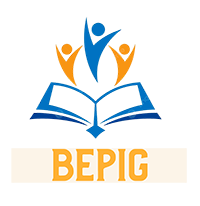Financial freedom is the state of having enough income, savings, and investments to cover your desired lifestyle without the necessity of active employment. It’s about being in control of your finances, making choices freely, and reducing financial stress. Financial freedom is a deeply personal concept, as the required amount varies depending on individual lifestyles, goals, and priorities. The core of financial freedom is having sufficient assets to generate passive income streams that can cover your living expenses and enable you to pursue your passions. Sound financial planning is essential to managing these resources effectively and sustainably.
Achieving financial freedom is about taking control of your personal finances to create a life with less stress and more opportunity. It involves building sustainable wealth and progressing towards long-term objectives. Budgeting, saving, and investing are crucial steps that alleviate financial anxiety, allowing you to pursue aspirations and achieve financial stability.
Strategies to Achieve Financial Freedom

Here are some actionable strategies to help you achieve financial freedom:
- Set Clear Financial Goals: Define your financial freedom by establishing specific, measurable, achievable, relevant, and time-bound (SMART) goals. Quantify each goal with concrete amounts and realistic deadlines. Break long-term aspirations into smaller, more manageable milestones that you can track and celebrate along the way.
- Assess Your Current Financial Situation: Conduct a thorough review of your income, expenses, savings, and liabilities to get a clear picture of where you stand financially. This evaluation helps identify areas for improvement and ensures that your efforts are aligned with your financial objectives.
- Budgeting: Effective budgeting is fundamental to financial freedom. Categorize your expenses into essential needs, savings goals, and discretionary spending. Track your spending habits to identify areas where you can reduce costs and resist impulsive purchases that derail your financial plans.
- Saving Consistently: Consistent saving and strategic investing are the cornerstones of building wealth and achieving financial independence. Prioritize building an emergency fund as a financial safety net to cover unexpected expenses.
- Investing Strategically: For longer-term financial goals, consider a mix of investment options based on your risk tolerance, time horizon, and financial objectives. Consider options like fixed deposits (FDs) or recurring deposits (RDs), which offer predictable returns and are a safe choice for risk-averse individuals.
- Reduce Debt: Prioritize paying off high-interest debts, such as credit card balances and personal loans, to reduce overall interest costs and accelerate your journey to financial freedom.
- Debt Consolidation: Explore the possibility of using personal loans to consolidate multiple high-interest debts into a single loan with a lower interest rate. This simplifies financial management, reduces overall interest costs, and allows you to focus on a single, manageable monthly payment.
- Avoid Excessive Debt: Make a conscious effort to stay out of debt or maintain manageable levels of debt with the ability to repay comfortably.
- Smart Borrowing: Consider personal loans to meet urgent financial requirements without jeopardizing long-term financial plans.
- Increase Income: Explore opportunities to increase your income through a second job, freelancing gigs, or entrepreneurial ventures.
- Financial Education: Dedicate time to continuously educate yourself about personal finance management.
- Emergency Fund: Build an emergency fund to cover unexpected expenses.
- Sacrifices: Recognize that small sacrifices today can yield significant financial benefits in the future.
- Multiple Income Sources: Diversify your income streams by creating multiple sources of income to enhance financial stability.
Personal Loans: A Tool for Financial Freedom

Personal loans are unsecured loans offered by banks or non-banking financial companies (NBFCs) to meet various individual needs. They do not require collateral and are granted based on factors such as income level, credit history, employment record, and repayment capacity. Personal loans provide flexibility in terms of usage, allowing borrowers to use the loan amount for a wide range of personal financial needs without restrictions from the lender. Whether it’s for home renovations, family vacations, medical expenses, business investments, or down payments on a new house, a personal loan can be a viable solution.
Benefits of Personal Loans
- Flexibility: Personal loans can be used for a wide range of purposes without restrictions on how the funds are used.
- Accessibility: Personal loans are relatively easy to obtain compared to secured loans that require collateral.
- Speed of Approval: Personal loans often have a quicker approval process compared to other types of loans.
- Debt Consolidation: Personal loans can consolidate multiple high-interest debts into a single loan with a lower interest rate, simplifying financial management.
- Financial Flexibility: Personal loans offer financial flexibility and the ability to address immediate needs without depleting savings or investments.
Risks of Personal Loans
- Interest Rates: Personal loans come with interest rates, which can vary significantly and impact the total cost of borrowing.
- Credit Score Damage: Misuse of personal loans can lead to financial difficulties and damage your credit score, making it harder to obtain credit in the future.
Using Personal Loans Wisely
- Budgeting: Before taking out a personal loan, create a comprehensive budget that outlines your income, expenses, and financial goals.
- Compare Lenders: Compare offers from various lenders to find the one with the most favorable terms, including interest rates, fees, repayment options, and loan tenure.
- Investments: Consider using personal loans for investments that have the potential to increase your income or net worth, such as education, home improvements, or business ventures.
- Prioritize Debt Repayment: If you use a personal loan for debt consolidation, make a concerted effort to pay off the high-interest debts first to reduce overall interest costs and accelerate your journey to financial freedom.
Case Studies

Debt Consolidation: John was struggling to manage multiple credit card debts with high-interest rates. He decided to take out a personal loan with a lower interest rate to consolidate all his debts into one manageable payment. This allowed him to save money on interest payments and simplify his financial life.
Home Improvement: Sarah wanted to renovate her kitchen, but she didn’t have the necessary funds readily available. She took out a personal loan to finance the renovation project. The renovation not only increased the value of her home but also significantly improved her quality of life.
Education: David wanted to pursue a master’s degree to advance his career prospects. He took out a personal loan to finance his education expenses, including tuition fees, books, and living costs. The degree helped him secure a better-paying job and significantly improve his financial situation.
Conclusion
Achieving financial freedom requires a combination of disciplined saving, strategic investing, and responsible borrowing. By setting clear financial goals and making use of financial tools like personal loans, you can navigate financial challenges and build a secure and fulfilling future. Personal loans can be a powerful tool when used wisely, but they also pose risks if not managed carefully. They can be a valuable resource for consolidating debt, making strategic investments, and improving your financial situation. However, misuse can lead to financial strain and credit score damage. To make personal loans work for you, exercise self-discipline, plan meticulously, and prioritize responsible borrowing.
Also Read : Top 10 soft skills every MBA graduate should master



